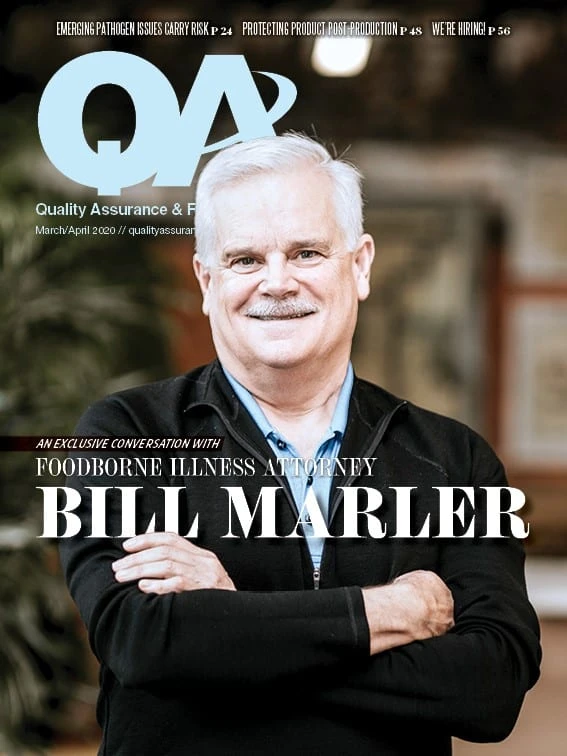
Editor’s Note: With the spread, and even knowledge, of the Novel Coronavirus (COVID-19) changing on a daily basis, the facts and business advice of this column are based on what is known as of its writing.
With the COVID-19 situation continually evolving, it is difficult to provide concrete advice on managing your food industry business during the outbreak. But, based on questions we have received, we see two key points that continue to be applicable to this industry:
1. The first is whether there is any evidence that the virus is able to transmit via food. The short answer currently is that the virus is not being transmitted via food or water; this also was stated by FDA in its March 18 Briefing for Foods Stakeholders on Coronavirus Disease 2019 (COVID-19). However we do know that, in some cases, infected individuals get diarrhea and the stool samples have the virus present. Thus, there is a possible fecal-oral transmission route. Keep in mind that the virus will infect a person if it comes into contact with nose, eyes, or mouth. So, if you are operating a food facility you should undertake a targeted clean if infected individuals are known to have been in your establishment. It appears that the virus can survive on a surface for a day or two. However, current data indicates that the virus is destroyed by bleach and hydrogen peroxide, so it does not appear to be resistant to the usual cleaning agents.
2. The second point is the impact of COVID-19 on your supply chain. Because of the unprecedented measures being taken in the US and globally to attempt to limit spread of the virus, there have been significant disruptions to supply chains around the world. This can be particularly critical if you have been using a sole-source supplier in an area of highest outbreak. The concern about the supply chain is significant for the food industry, particularly the hidden dangers of having to rush into sourcing from other places that you may not have time to fully assess; the difficulty in getting product from overextended suppliers; the lack of ingredients that come only from a single high-outbreak area; and even travel to inspect a provider’s facility or bring on a new supplier.
WHAT YOU CAN DOIf you’ve not already done so, of high importance is reviewing your entire supply chain for availability of products, ingredients, and supplies, particularly those for which you have a sole-source supplier. As we’ve seen with consumer runs on items, even if you are fully stocked in a product or ingredient today, you don’t know if others are attempting to stock up or how long today’s varying state and global restrictions will last. And once the businesses and borders reopen, it will take time to get back up to speed and fill back orders.
No one could have predicted the coronavirus outbreak or all its impacts, and having to deal with this new type of health risk and find a new product or ingredient source virtually overnight is not only challenging, it is fraught with risks. If you do need to add a new supplier quickly, do as much investigation and assessment as possible with the time and personnel you have; make sure they can fulfill your needs, so you don’t end up with further shortages and have to find another additional supplier.
Because the situation is continually evolving, so too are the questions and advice. So TAG is providing daily updates throughout the outbreak, however long it should continue, on our COVID-19 web page (https://bit.ly/39aJODx) and daily e-newsletter.

Explore the March April 2020 Issue
Check out more from this issue and find your next story to read.
Latest from Quality Assurance & Food Safety
- Q&A: Sandra Eskin Leads Food Safety Advocacy Organization, STOP, as CEO
- STOP CEO Eskin on Government Layoffs, Challenges in Food Safety
- Mission Barns Announces Cell-Cultivated Pork Fat Launch Following FDA Clearance
- Hearthside Food Solutions Recalls Breakfast Sandwiches Due to Undeclared Allergen
- Walker’s Wine Juice Recalls Pumpkin Juice Due to Botulism Risk
- The Cascading Food Safety Impacts of Tariffs on the Food Industry
- Tyson Ventures Calls Startups to Apply for Tyson Demo Day
- Student Finalists Selected for IFT Product Development Competitions






